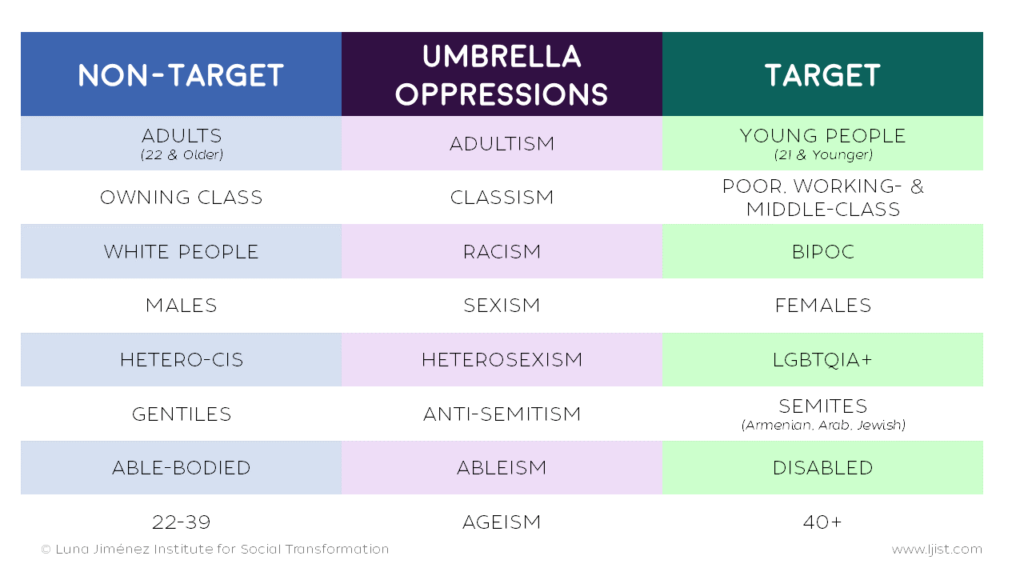It’s not useful to confuse people with their oppression.
At LJIST, we don’t use language like “oppressor” or “oppressed” or “perpetrator” or “victim.” People don’t want to be described or identified by their relationship to oppression.
Instead, we use the language “target” and “non-target,” which describes people’s relationship to oppression rather than confusing or identifying them with the oppression itself.
The target group is the group that’s on the receiving (targeted) end of the oppression. The non-target group is the group that is not targeted by the oppression.

Target group members carry messages of internalized inferiority as a result of not being able to discharge the experiences of oppression they receive. The non-target group will carry messages of internalized superiority or dominance as a result of the lies and misinformation they are told about being better than other groups.
Implementing this language is an important first step in being able to distinguish humans from oppression. We have a relationship to oppression, but we are not oppression.
